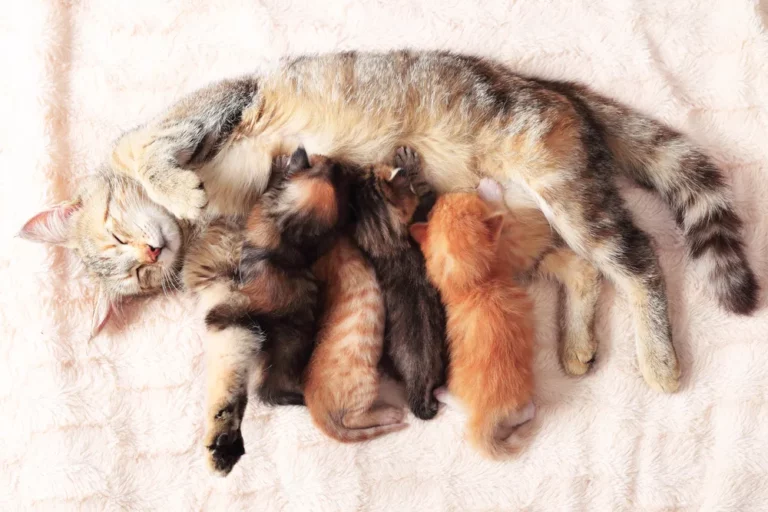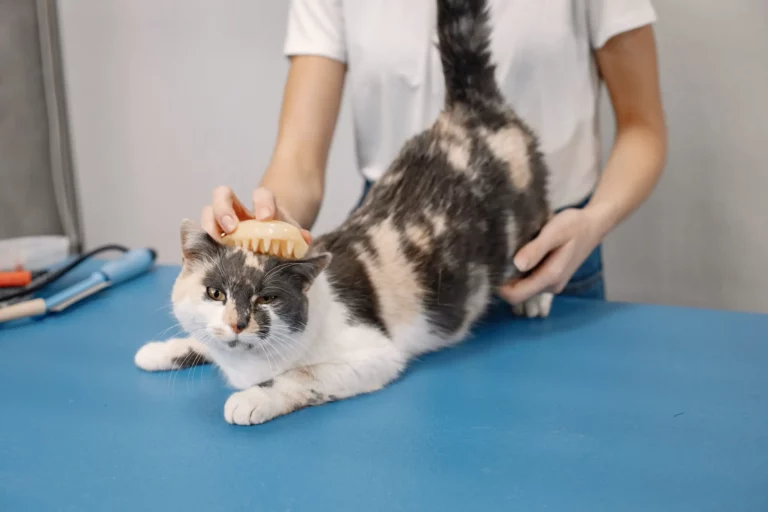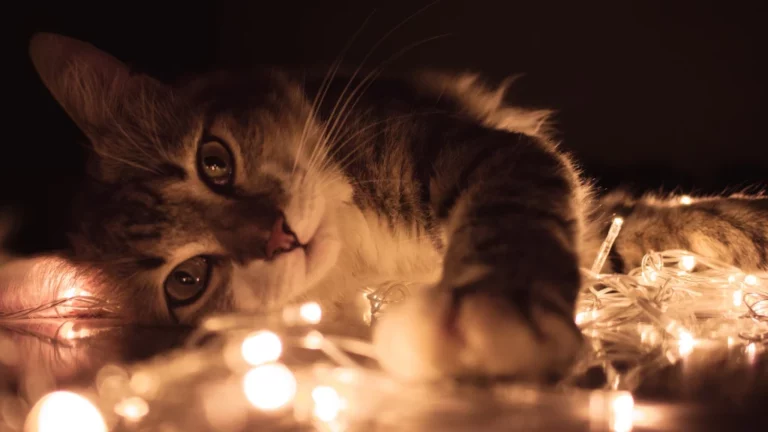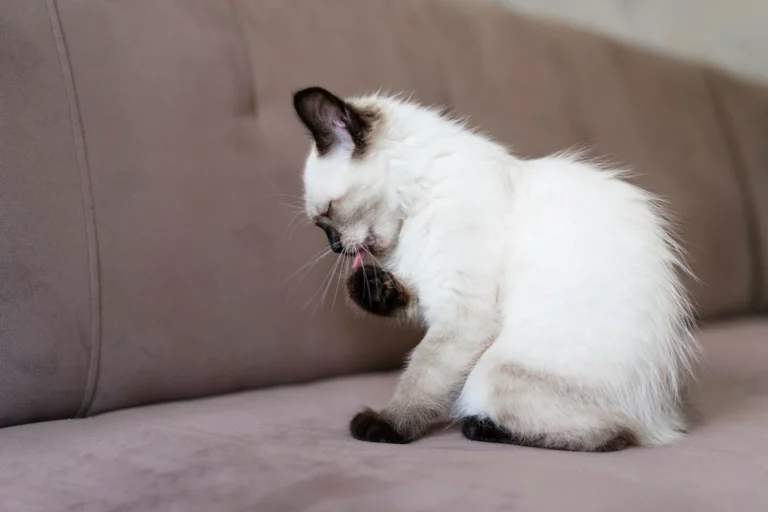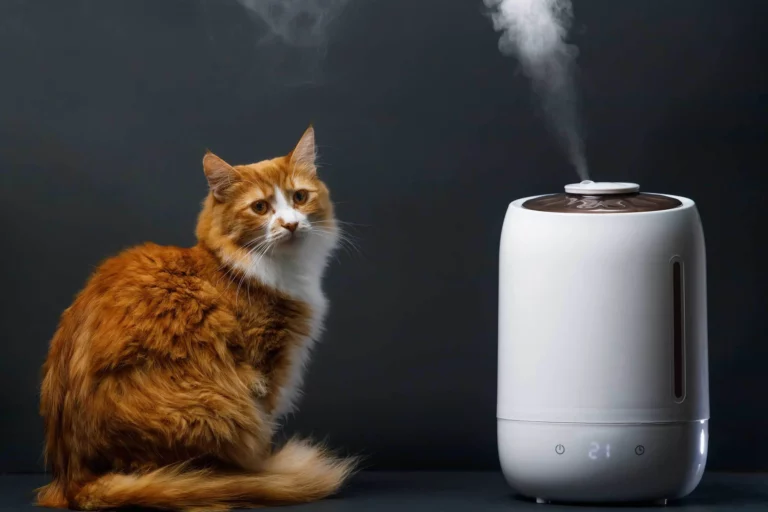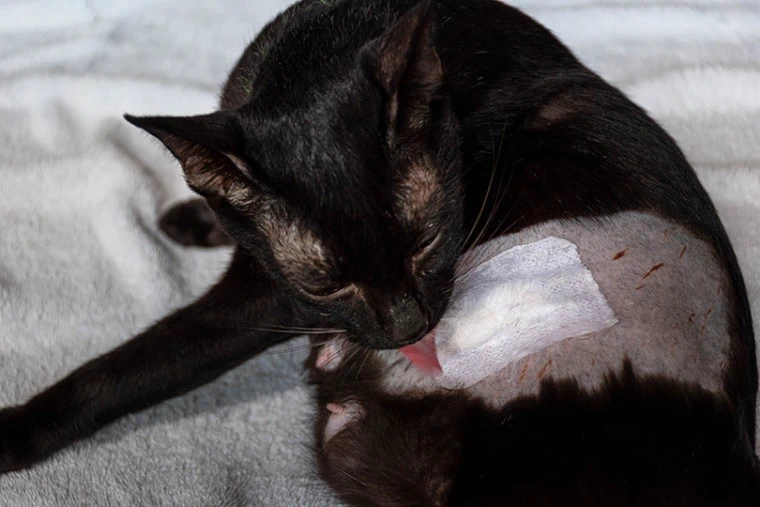Why Are Bengal Cats Illegal in Certain States & Countries?
Bengal cats are a beautiful and exotic breed of cat that has become increasingly popular as pets in recent years due to their unique coats and active personalities.
However, Bengal cats are illegal in some states and countries, due to concerns regarding animal welfare and potential risks posed to the public.
In this blog post, we will answer some of the most frequently asked questions about the issue and shed light on the reasons behind the ban.
Find out why they’re banned, what alternatives exist, and if you can keep a Bengal cat where you live.
Whether you’re considering adopting a Bengal cat or simply curious about the topic, read on to learn more.
No products found.
About the Bengal Cat
Bengal cats are a unique and striking breed of domestic cat that have distinctive markings reminiscent of their wild ancestors, the Asian leopard cat.
They have short, plush fur that comes in a variety of colors, including brown, silver, and snow leopard coat colors.
Their eyes are typically green or gold, and they have muscular, athletic bodies that make them excellent climbers and jumpers.
Bengal cats are known for their playful and curious personalities.
They are highly intelligent and require plenty of mental and physical stimulation to stay happy and healthy.
They also tend to form strong bonds with their owners and are often described as being dog-like in their loyalty and affection.
Bengal cats were first bred in the 1960s by crossing Asian leopard cats (Prionailurus bengalensis) with domestic cats (Felis catus).
Since then, they have become a popular breed among cat lovers worldwide.
However, in some states and countries, concern about the potential health or safety risks posed by these cats has led to bans on ownership.
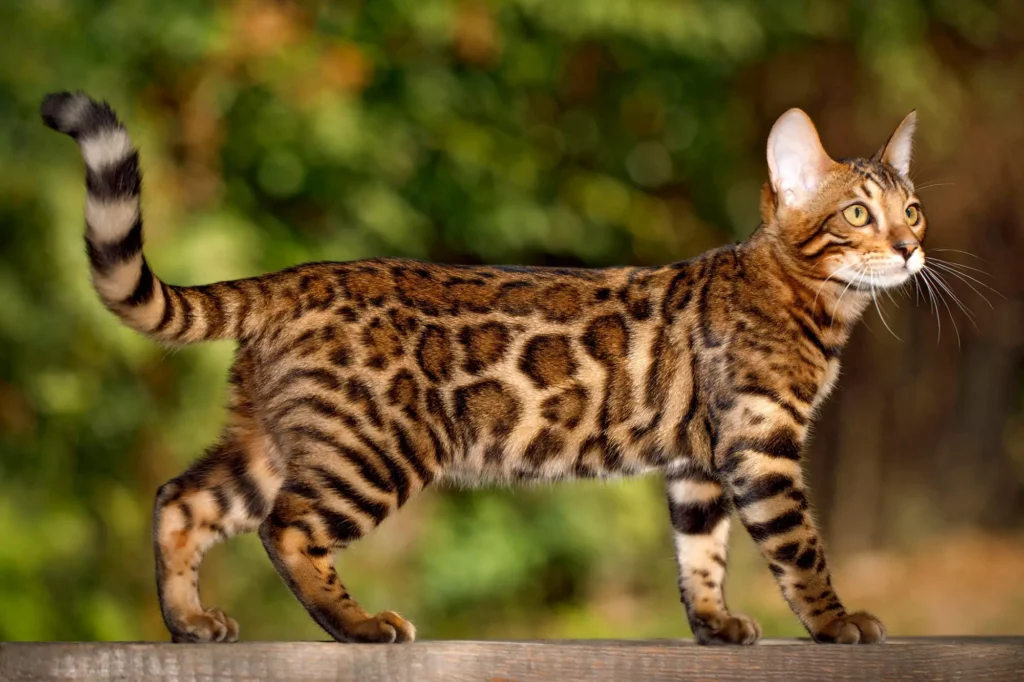
Why are Bengal Cats illegal in Some Places?
Despite their popularity as pets, Bengal cats are illegal in some countries or states due to concerns about public safety and the welfare of the cats themselves.
One of the main reasons for the ban is that Bengal cats are considered to be wild animals, and therefore potentially dangerous to humans.
In some places, Bengal cats are also banned due to concerns about their impact on local ecosystems.
This is because they are a hybrid breed that can potentially escape into the wild and mate with native species, disrupting the natural balance of the environment.
Danger to Domestic Animals & Wildlife
Bengal cats are banned in some states and countries due to their potential danger to the local domestic animal population and native wildlife.
These cats possess a strong prey drive and very active hunting skills, making them vulnerable to killing prey such as birds, small rodents, and rabbits.
This can cause concern for those living in rural areas where native fauna is already threatened by human-wildlife conflict.
Furthermore, concerns have been raised over the potential impact of hybrid cats on wild gene pools when they escaped into the wild or interbred with feral colony cats.
Health and Behavioral Problems
The health and behavioral problems associated with Bengal cats can be a major concern for those considering owning one of these exotic pets.
While Bengals are typically healthy felines, they can be prone to some inherited medical issues such as heart defects, congenital eye disease, and kidney problems.
Additionally, their ancestry means they also tend to display behavior that is similar to wild cats – such as engaging in destructive or dangerous activities like climbing curtains or jumping on counters – making them unsuitable for many households.
Regulations Governing Bengal Cat Ownership
Here are a few examples of regulations governing Bengal cat ownership around the world:
- United States: In most states, yes, Bengal cats are considered domestic cats and are legal. However, there may be restrictions depending on the city or state you live in. For example, New York State and Hawaii have banned all hybrid cats while other places like Seattle and Denver have regulations on owning Bengals of the F1-F4 generations. Additionally, Connecticut, Hawaii, New York, and Seattle have outlawed all generations of Bengal cats. As long as the cat is five generations removed from their wild ancestors, they are allowed worldwide in Europe and Australia as well as the United States.
- Australia: Bengal cats may be allowed into Australia if they are at least five generations removed from their wild ancestor, the Asian Leopard Cat. This ensures that the cats have been bred over several generations and properly domesticated to make them suitable house pets.
- United Kingdom: Bengal cats are legal to own, but they are classified as “hybrid” cats and are subject to certain regulations under the Dangerous Wild Animals Act.
- Canada: Bengal cats are legal to own, but some provinces may have specific regulations regarding the ownership of exotic animals.
- Singapore: Bengal cats are classified as a “controlled” breed and require a license from the Agri-Food and Veterinary Authority to be owned.
It’s important to note that these regulations can vary depending on the specific region or municipality within each country, and it’s always best to check with local authorities before considering adopting a Bengal cat.
Alternatives to Getting a Bengal Cat
If you are looking for an exotic, wild-looking cat breed but can’t get a Bengal, there are still many options available.
Some of these cats bear a close resemblance to the Bengal and have similar personalities, such as the Savannah.
Other breeds include the Chausie, Toyger, Bombay, and Ocicat, all of which feature large spots or stripes and make excellent pet cats.
Checking with your local pet store and speaking to experienced breeders in your area can help you determine which of these cats is the best fit for your lifestyle.
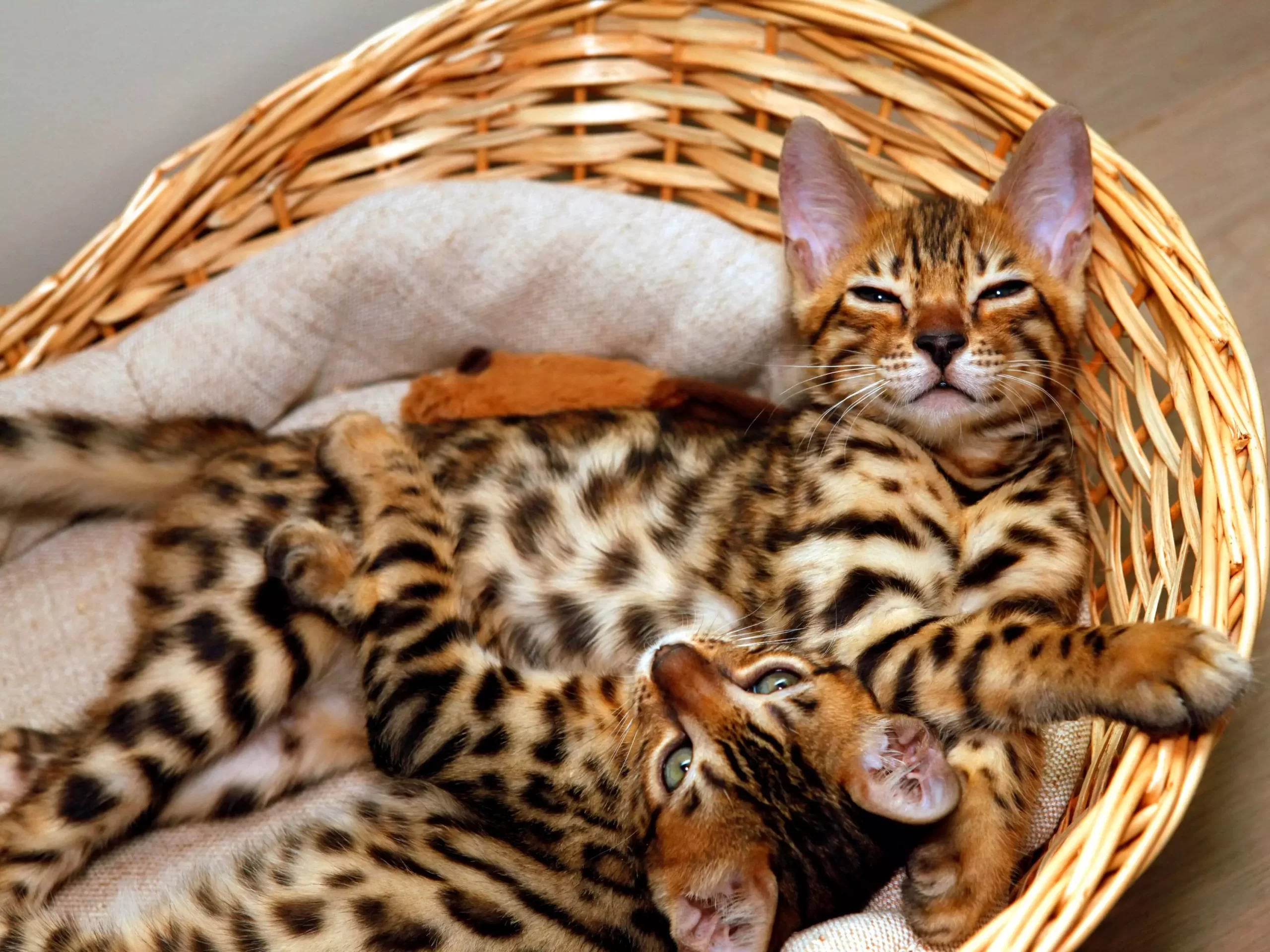
No products found.
Frequently Asked Questions
What is the reason for the ban on Bengal cats?
The ban on Bengal cats is often due to concerns about public safety and the welfare of the cats themselves, as well as the potential impact on local ecosystems.
Are Bengal cats dangerous?
While Bengal cats are generally not considered dangerous if they are well-socialized and trained, they are still wild animals at heart and can exhibit aggressive behavior if they feel threatened or stressed.
Can I still own a Bengal cat if it’s illegal in my area?
It’s not recommended to own a Bengal cat in an area where they are illegal, as doing so could result in fines, legal action, or the confiscation of your pet.
How can I find out if Bengal cats are legal in my area?
You can check with your local animal control office or government agency to see if Bengal cats are legal in your area. You can also consult with a reputable breeder or veterinarian for more information.
What are the consequences of owning an illegal Bengal cat?
Consequences for owning an illegal Bengal cat can include fines, legal action, and even the confiscation of your pet.
Are there any alternative breeds to Bengal cats that are similar?
Some alternative breeds to Bengal cats include Savannah cats, Egyptian Maus, and Ocicats, which all have similar appearances and personalities.
Remember to always do your research and follow the laws and regulations in your area before considering owning a Bengal cat or any other exotic pet.
Related:
Final Thoughts on Why Are Bengal Cats Illegal
Bengal cats are a unique and fascinating breed of cat that have captured the hearts of many cat lovers around the world.
However, due to concerns about public safety, animal welfare, and the potential impact on local ecosystems, they are illegal in some states and countries.
It is essential to consider the regulations governing Bengal cat ownership before adopting one of these exotic pets.
Alternatives to the Bengal cat, such as the Savannah, Chausie, Toyger, Bombay, and Ocicat, are available for those who want an exotic and wild-looking pet without the potential risks associated with Bengal cats.
Ultimately, responsible ownership and careful consideration of the impact of owning an exotic pet can help ensure the well-being of both the cat and the local community.
Additional sources:
- Pictures and Facts About Bengal Cats and Kittens (thesprucepets.com)
- Is a Bengal Cat Dangerous? – Bengal Cat Club
- The Joys and Hazards of Living With a Pet Bengal Cat – PetHelpful
- What is the Origin of the Bengal Cat? (animalwised.com)
- Why Are Bengal Cats Illegal in Some States and Countries? | Hepper
- Bengal Cat Breed Information, Pictures, Behavior and Care (cattime.com)
- Bengal Cat Breed Profile | Purina
- Ownership and or possession and appropriate disposition of wild and exotic pet species or their hybrids | American Veterinary Medical Association (avma.org)

